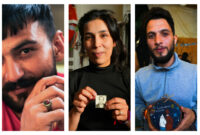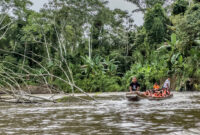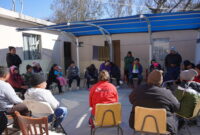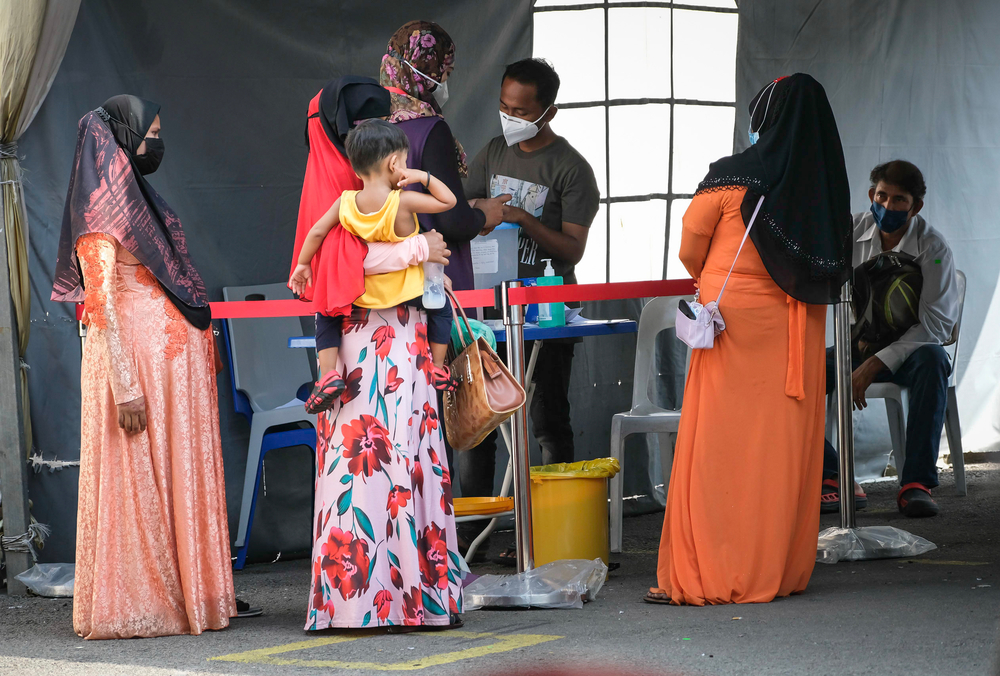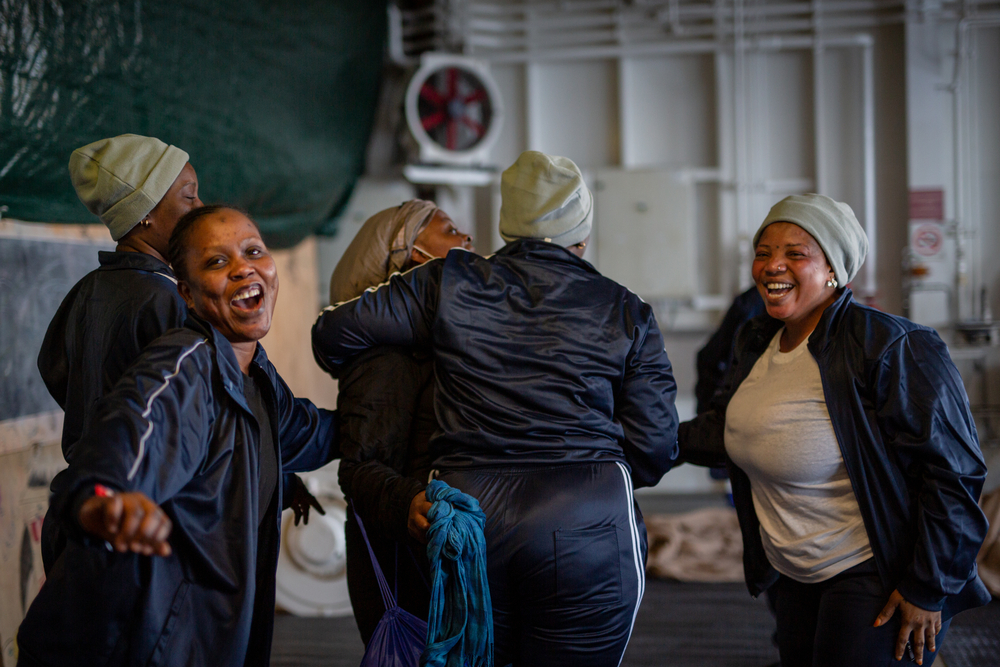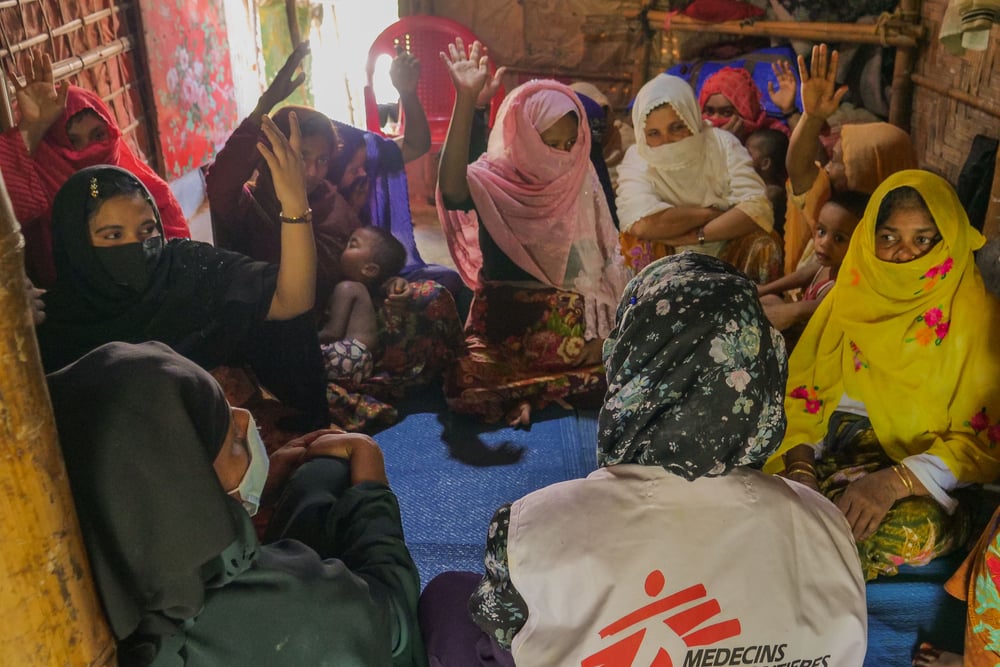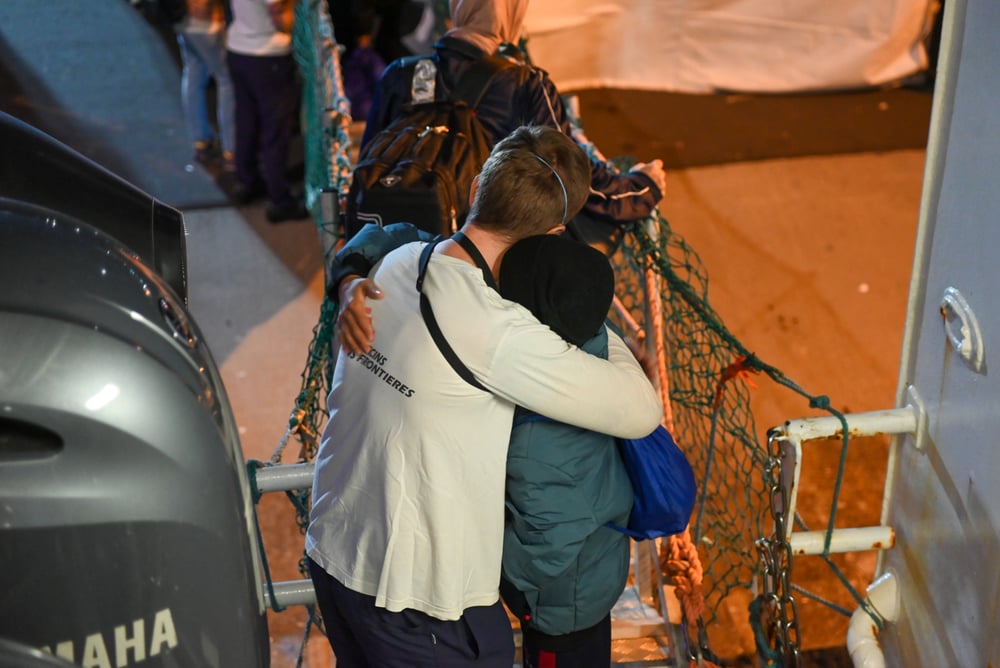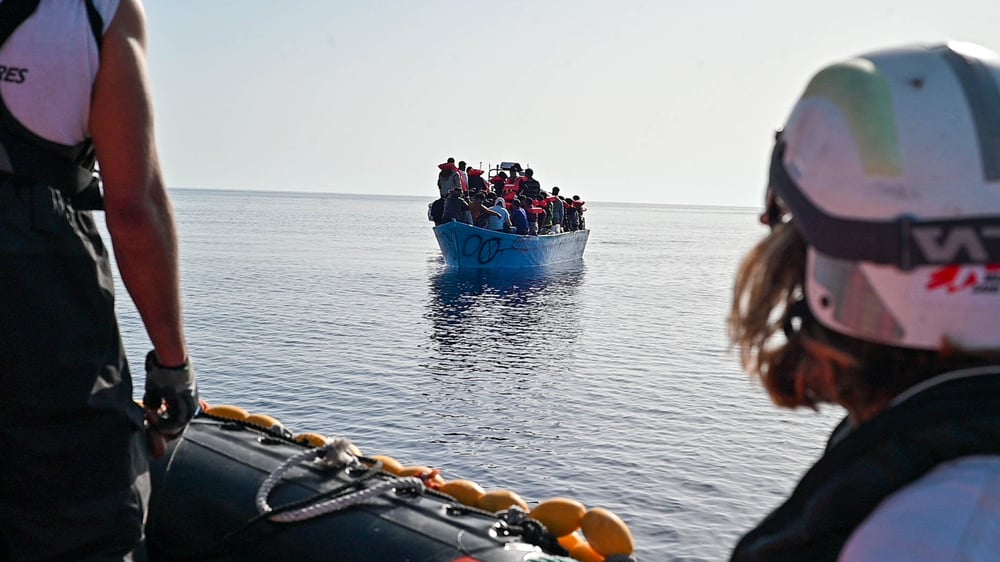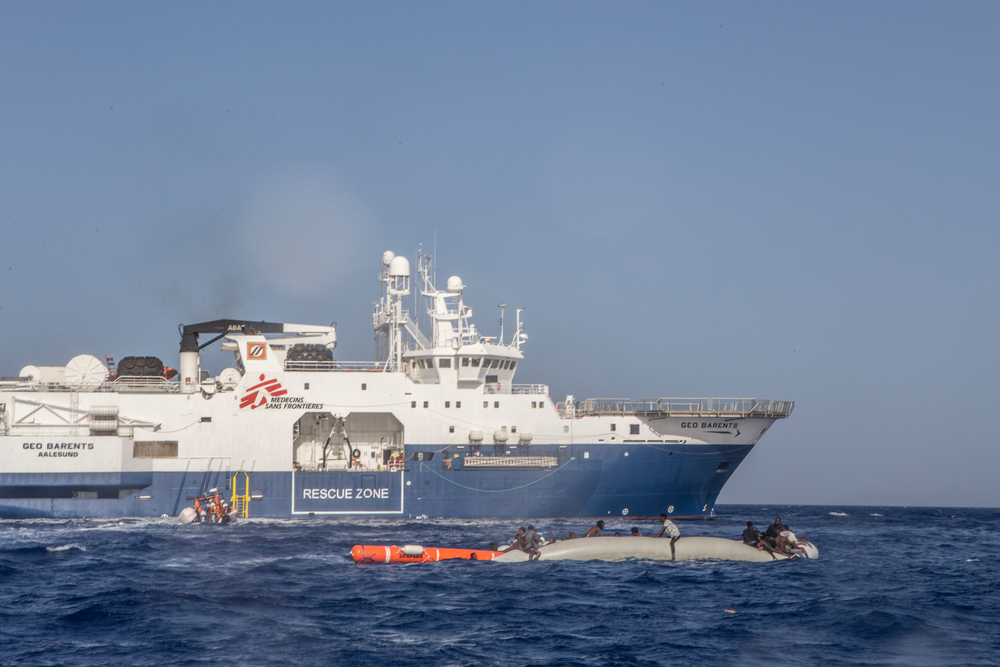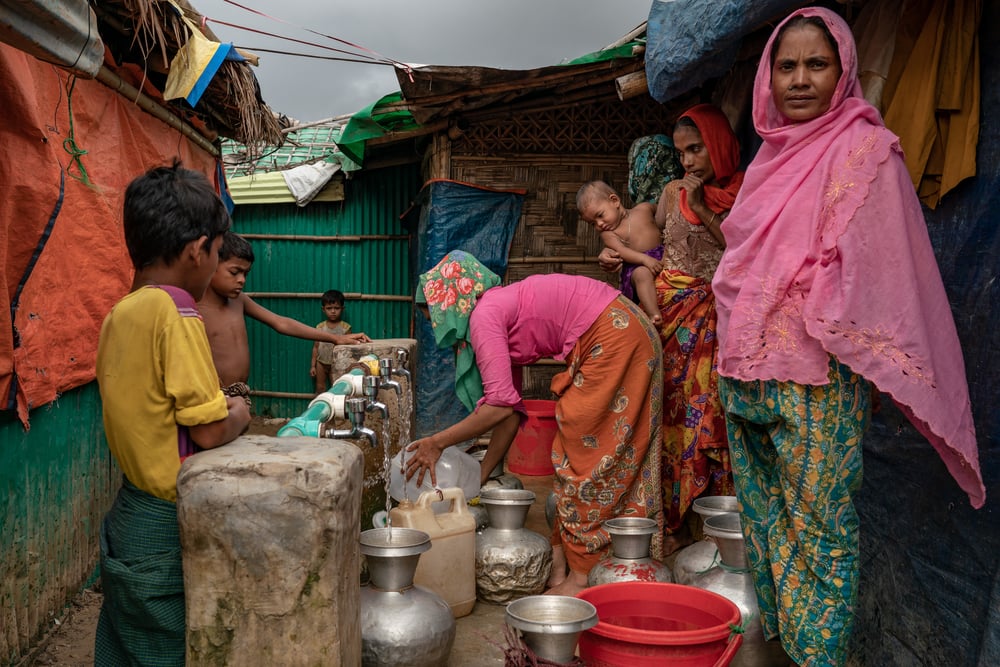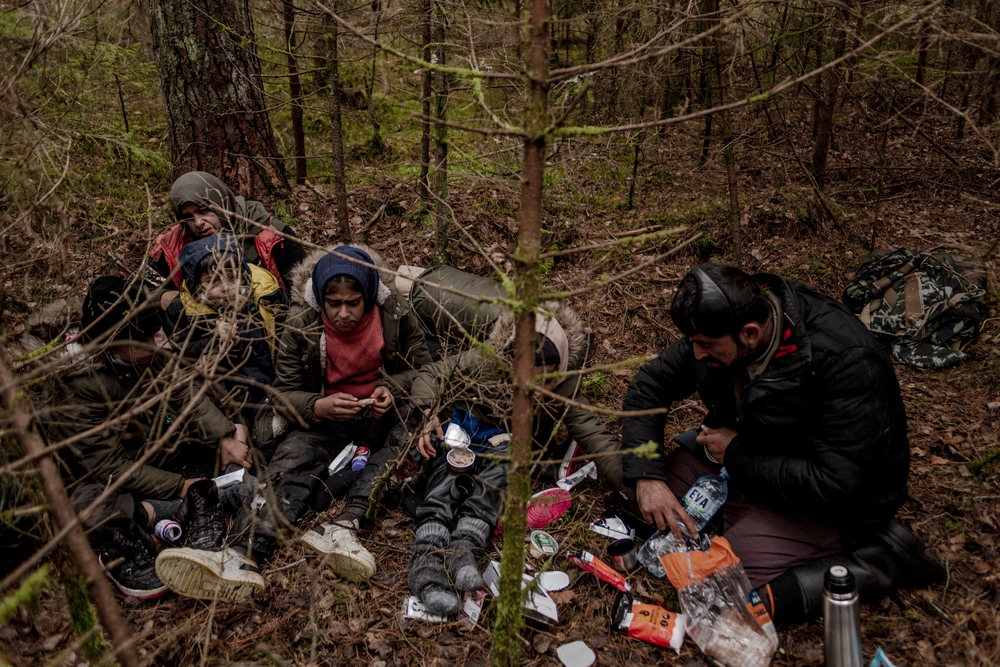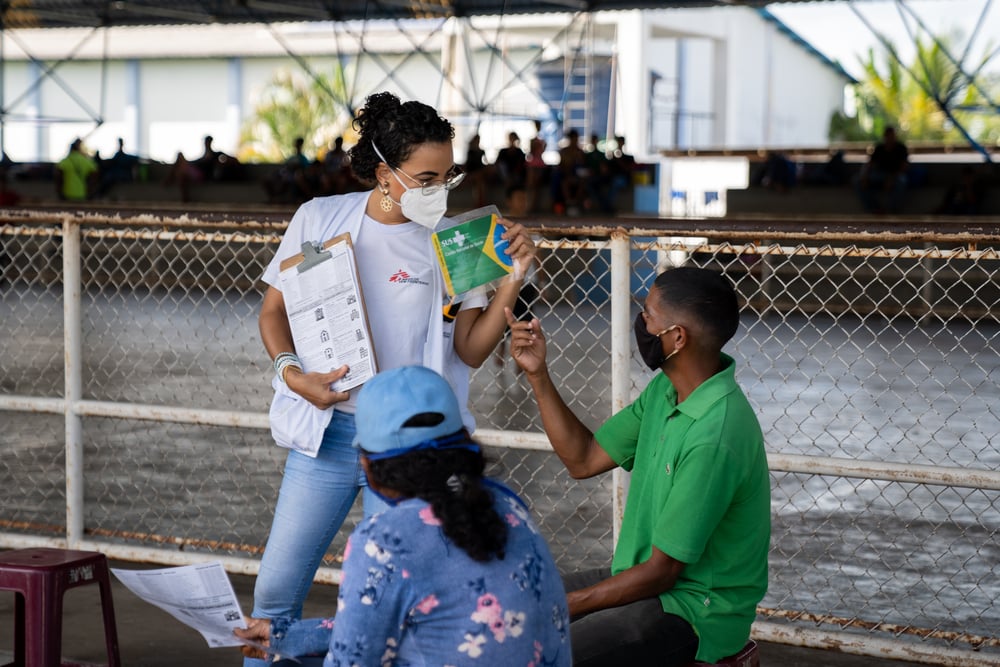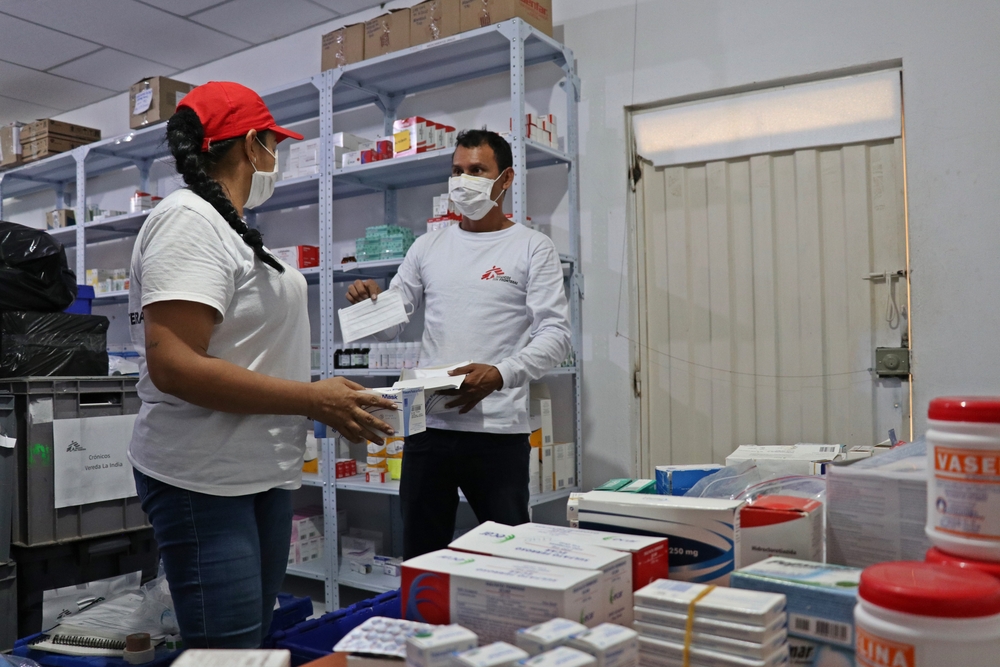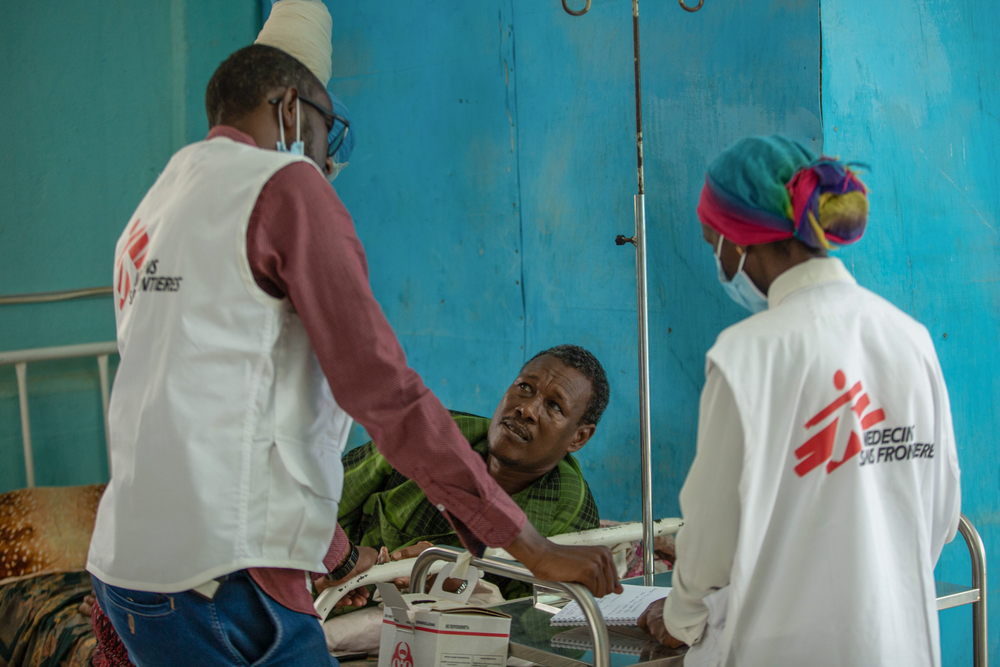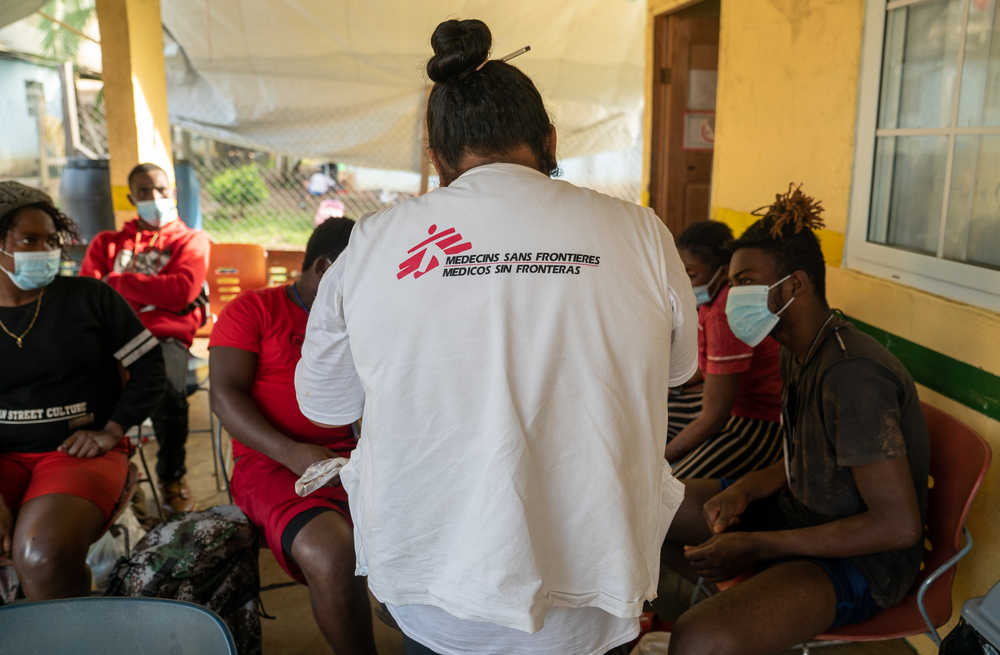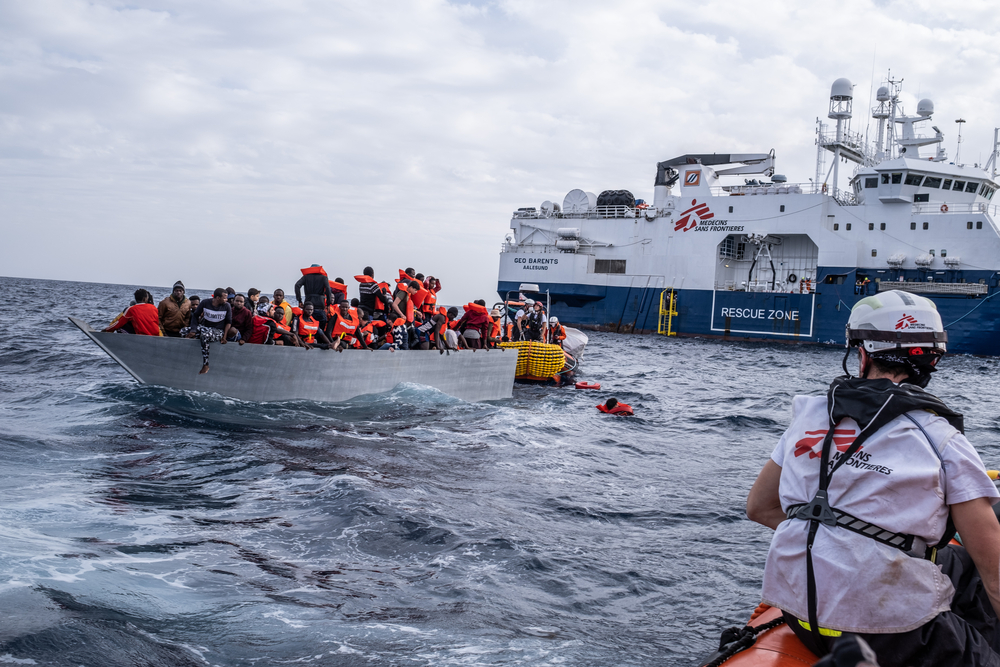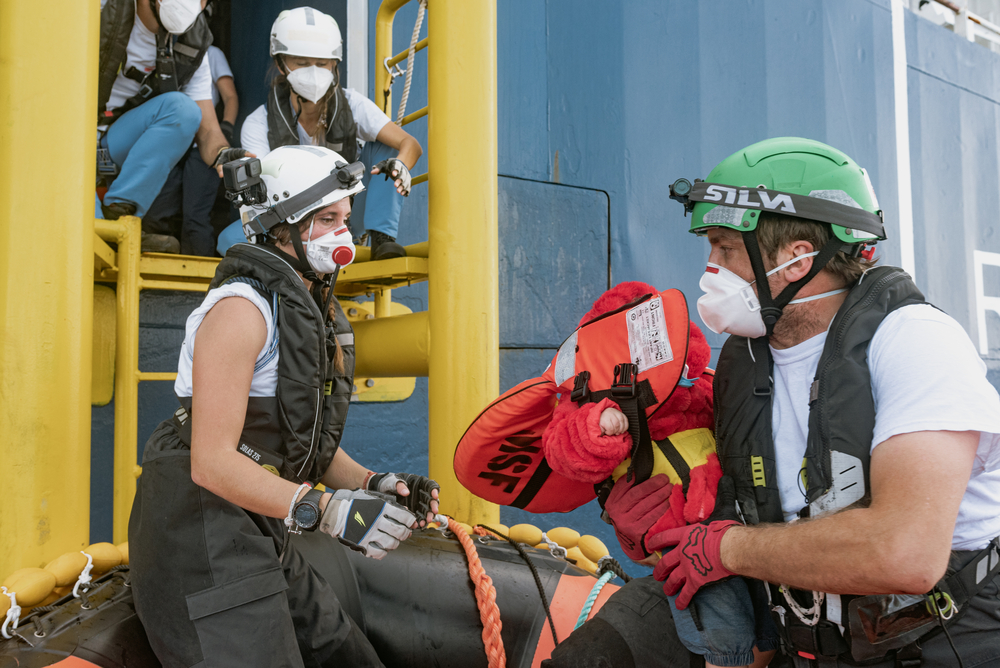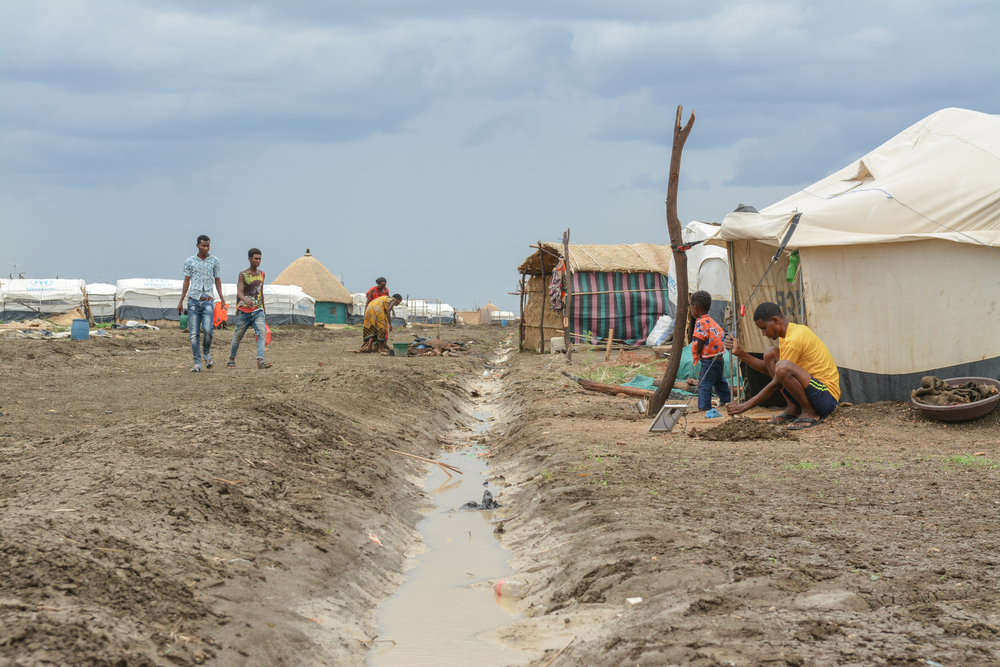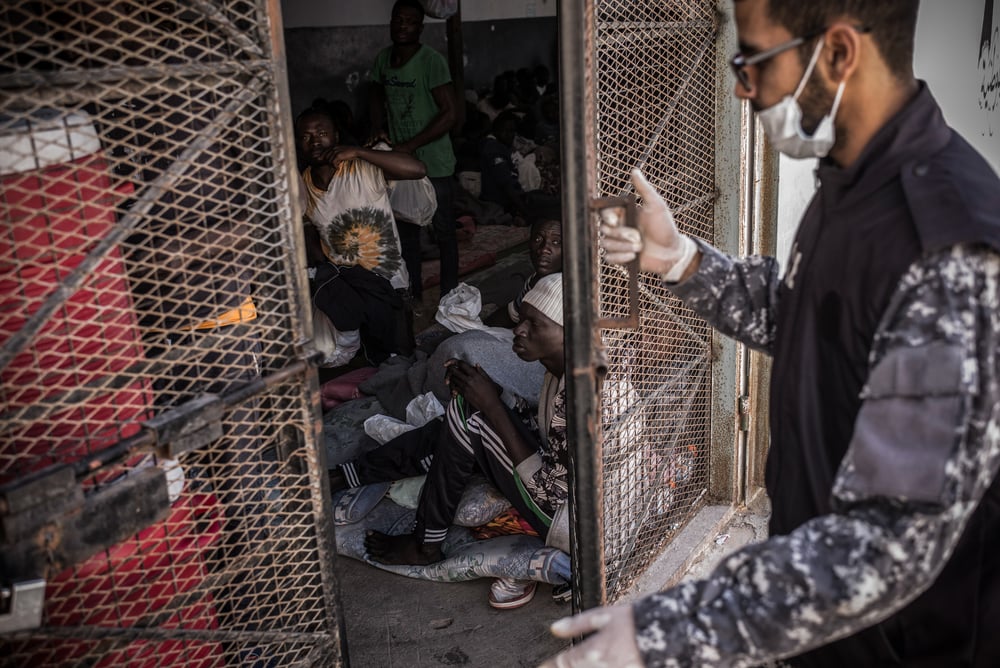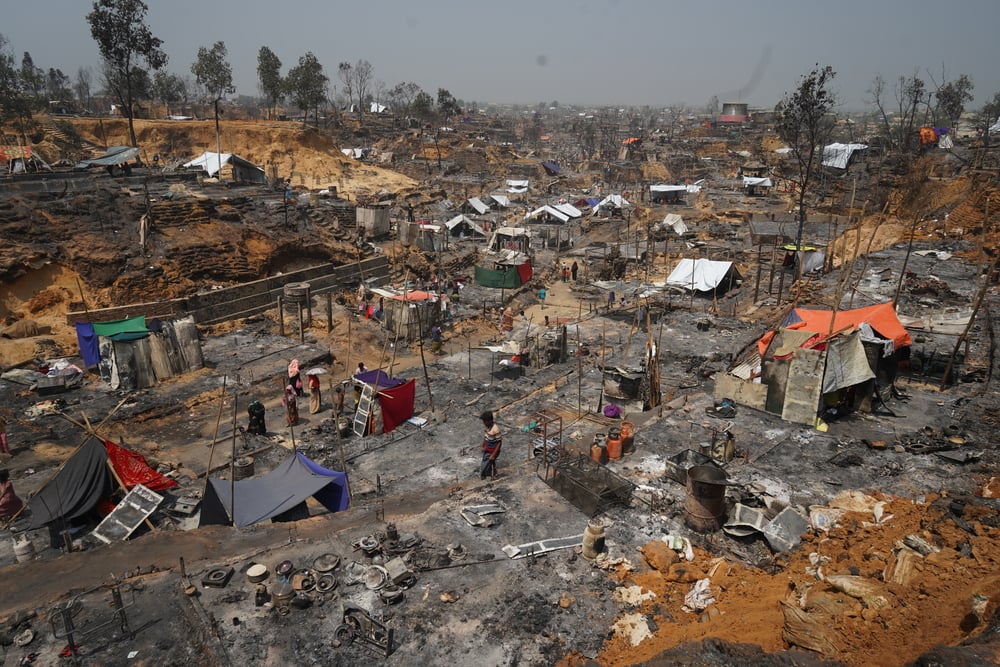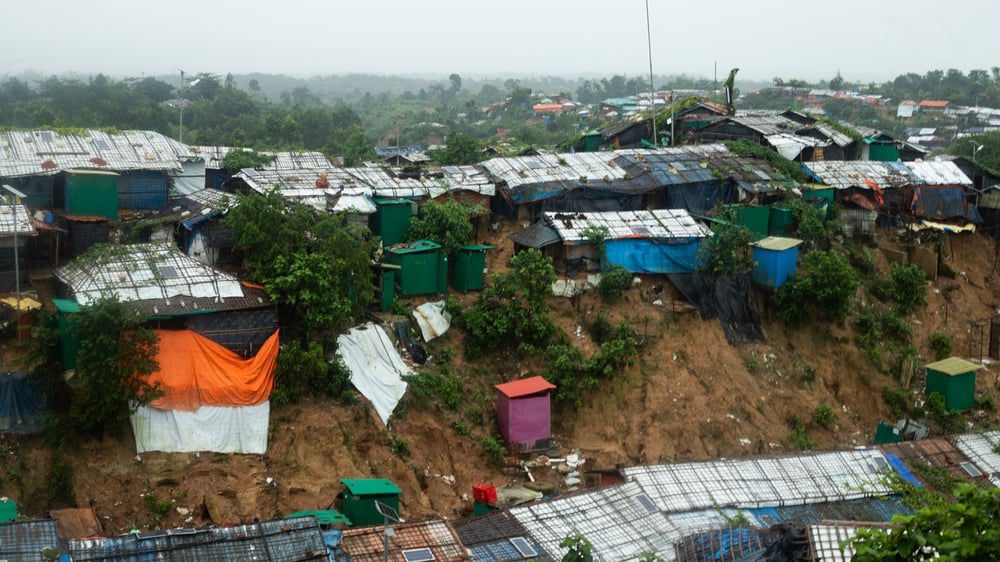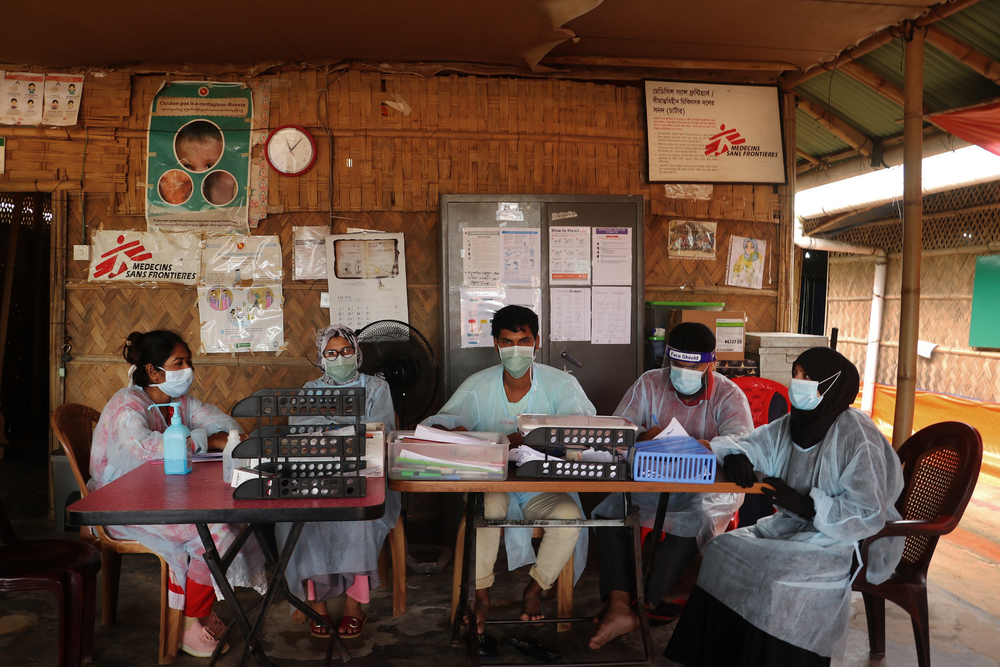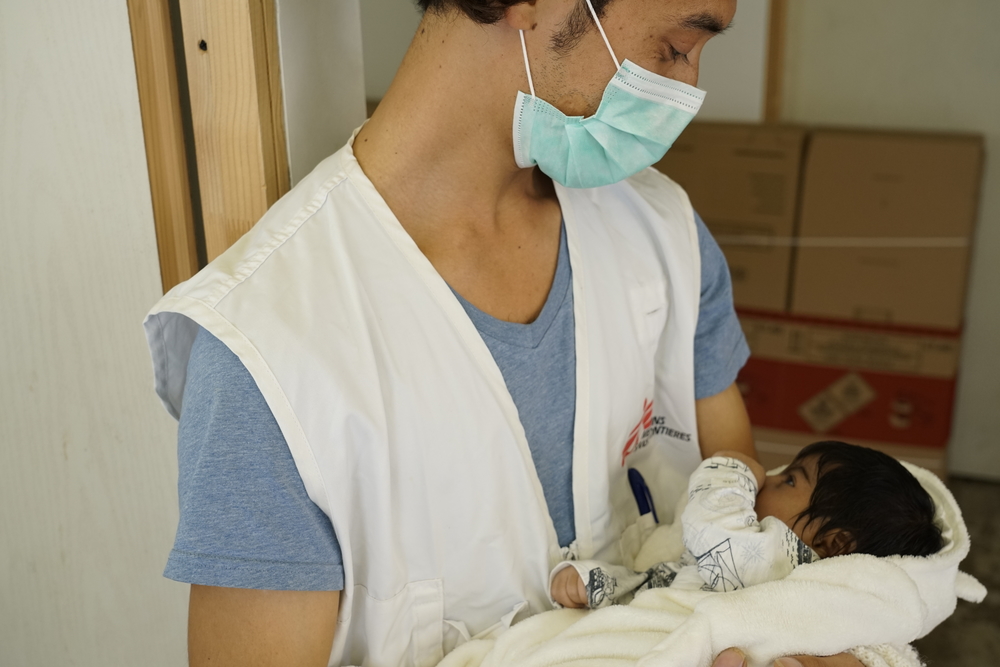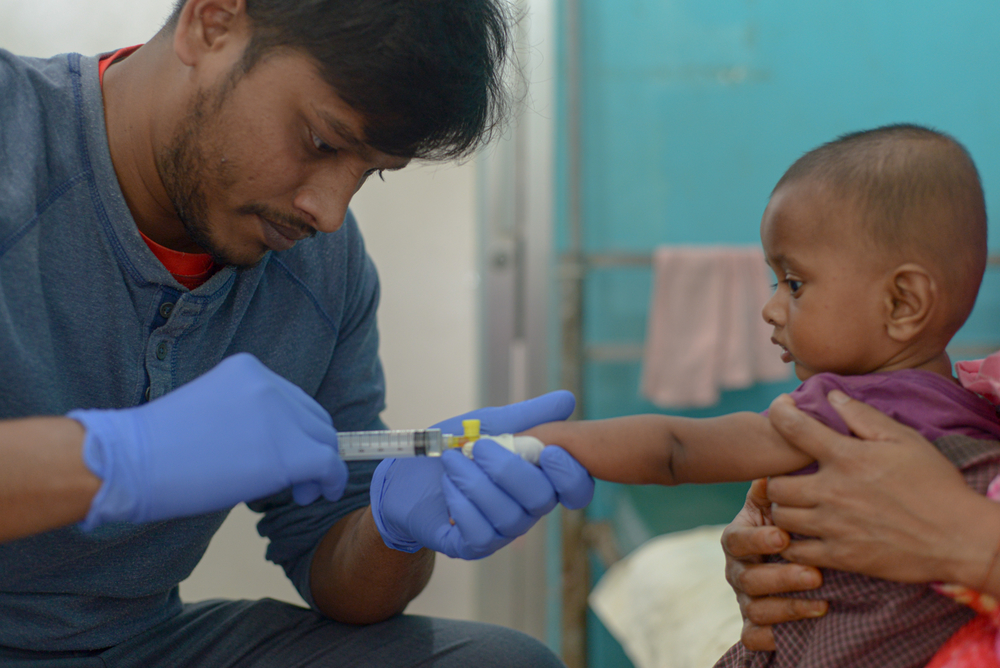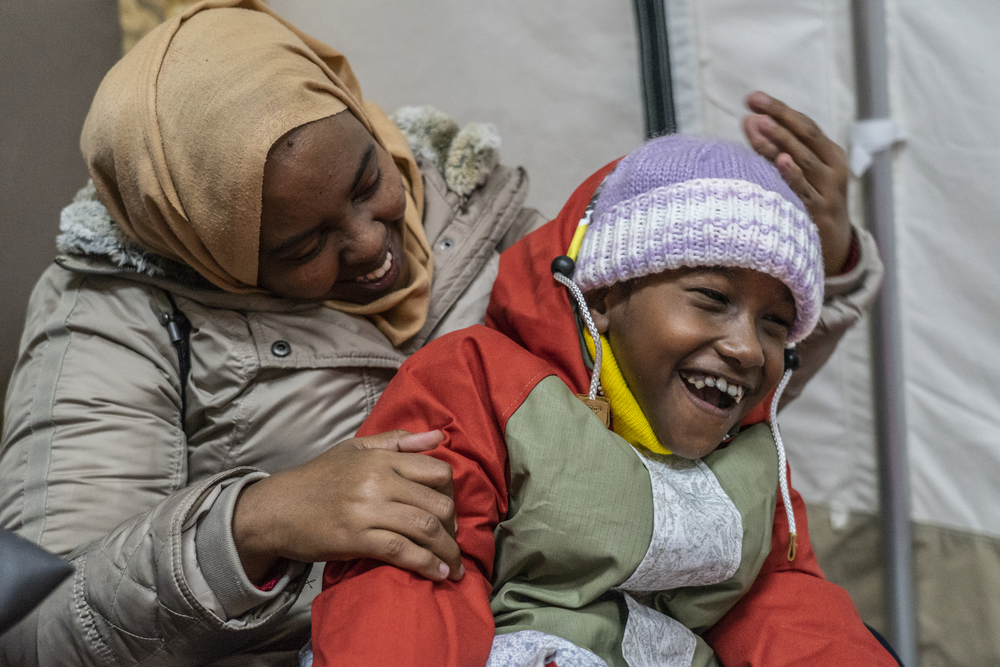Northwest Syria: The displaced population dreading another tough winter
Another winter season is approaching in northwest Syria, where over 2 million people, the majority of whom are women and children, remain internally displaced. In camps, harsh living conditions and limited access to basic shelter, sanitation, food, water and healthcare, become even more overwhelming during winter. Leaking tents, mud-filled streets and freezing temperatures contribute to a further deterioration of people’s physical and mental health and their overall living conditions.
“The camps located in mountain areas are especially exposed to high winds and heavy rainfall during winter”, explains Doctors Without Borders/Médecins Sans Frontières (MSF) Logistics Manager, Ousama Joukhadar. “Every year, the tents need insulation to be protected from rainwater and prevent leakage. Camps located in low-lying areas are less exposed to wind but are also often severely damaged by floods”, he adds.
‘Winterization’ activities
In order to mitigate the consequences of the cold winter on the displaced people, MSF teams are currently conducting “winterization” activities that include distributing kits of warm clothes and blankets to around 3,000 families in 18 camps. Moreover, around 3,900 families also benefited from tent flooring, roof isolation and thermal insulation to overcome flooding and extreme cold temperatures. MSF will continue running similar activities throughout winter, including the surface water drainage in the camps.
Winterization activities usually start too late in northwest Syria, when winter is already here, and this is mainly because of the lack of funding for such activities. “This year, we worked hard to complete the winterization activities right before the harsh winter season starts” explains MSF Country Director for Syria, Yasser Kamaledin. “We wanted the people in camps to be as prepared as possible from the beginning of the season. It is one of the most appreciated activities by the population in the camps because of the instant impact on their daily lives. Time is a key factor for this intervention, if it is done in the middle of winter, it is already too late.”.

Every year, MSF witnesses the direct health impact of winter through its activities in the camps. People living in camps face the prospect of suffering from respiratory diseases, waterborne diseases and frostbites as well as complications related to smoke inhalation and burns due to the inadequate heating methods and the fuel that is stored in the tents. For instance, MSF has noticed an increase in respiratory illnesses by 30% between autumn 2019 and winter 2019-2020 in Deir Hassan camps, even before COVID-19 arrived into northwest Syria. Moreover, respiratory illnesses are constantly in the top three illnesses reported in our facilities in the northwest, especially during winter.
Spreading health awareness
Therefore, MSF has also deployed health promotion teams to spread health awareness messages about common winter diseases, assess people’s health needs, and inform them about MSF’s mobile clinic services. “Today was just a sample of the daily reality of displaced people. It was freezing”, says Shatha Folfola, MSF health promotion officer, after conducting a health promotion session during a winter kit distribution in a camp. “Everyone was feeling cold and we are still in the month of November. People came to take the kits and left immediately. We saw children wearing light clothes. Their lips and hands were turning blue. They weren’t even wearing shoes”.

Ahmad’s children are living similar experiences. “The cold weather is impacting my child’s health”, he says. “My son is constantly suffering from stomachaches and colds. My other child’s temperature reached 40 degrees. Pimples spread in his mouth, hands, and legs due to the fever. But we couldn’t afford to take him to the doctor”.
While humanitarian needs are increasing due to the protracted conflict in Syria, the funds to answer those needs are drastically decreasing. The UN estimates that 210 million USD are required to address the essential needs of more than three million people, including both the residents and Internally Displaced People, in northwest Syria during winter. However, only 23% of this fund is currently available.
“As long as there are camps in northwest Syria, the needs will most likely persist every year” adds Joukhadar. “MSF is not able to respond efficiently to all the increasing needs in the camps, especially during winter. There’s a need to accelerate the allocation of funds and implementation of the winterization activities, as early as possible, to ensure the survival of the population living in the camps in northwest Syria.”

